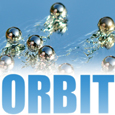Group Talk and Argument
This resource may not be final.
Lesson idea. The resource comprises one 32 page DfES document (Ref: DfES 0697-2004 G) in editable format (.doc)
Teaching approach. This Teacher Education resource covers background information, practical activities, and practical examples for engaging dialogue(ta) in the context of group work(ta) and whole class(ta) work effectively in the classroom, in particular to ensure high quality reasoning(ta). The resource encourages teachers to think about situations and prompts for argumentation(ta) and how these might be used to support the science curriculum. (edit)
| Resource details | |
| Title | Group Talk & Argument in Science Teaching |
| Topic | |
| Teaching approach | |
| Learning Objectives | The document has a set of activities and practical examples. In working through this you should explore ways to use group talk in science lessons, and the practicalities of setting up situations for constructive group talk. |
| Format / structure | .doc |
| Subject | |
| Age of students / grade | |
| Table of contents | |
| Additional Resources/material needed | |
| Useful information | |
| Related ORBIT Wiki Resources | See other DfEScience(i) resources |
| Other (e.g. time frame) | |
| Files and resources to view and download | |
| Acknowledgement | |
| License | |
- This resource has been harvested by ORBIT and made into a document that can be edited from the DfES resource "Strengthening teaching and learning in science through using different pedagogies" (ref:0703-2004)
- The original can be downloaded from the 'National Archive' here http://webarchive.nationalarchives.gov.uk/20110809101133/nsonline.org.uk/node/154651.
- We have, in places, edited these resources to remove references to obsolete legislation, guidance, or websites or to otherwise adapt them to our purposes. In particular, we have separated out key elements of the resources into separate 'ideas'.


